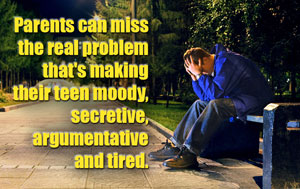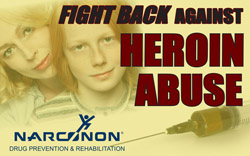When America’s children are in middle school, high school or college, this is when parents’ hearts should be swelling with pride. This is when these young citizens should be gaining the education that will prepare them for life and for contributions to their communities and country. Instead, too many of our families are dealing with the addictions of their beloved children or, worse yet, their deaths due to overdose or drug-related accident.
 While this situation has existed for quite some time, it’s just now coming to broad public view. For years, obituaries of teens and young adults who died from drug-related causes simply stated that the young person died at home, died suddenly or died of heart failure. Now, parents are making their children’s problems known and young adults in recovery are telling their stories. As more people are exposed to these experiences, the dangers to students of any age become better known and understood.
While this situation has existed for quite some time, it’s just now coming to broad public view. For years, obituaries of teens and young adults who died from drug-related causes simply stated that the young person died at home, died suddenly or died of heart failure. Now, parents are making their children’s problems known and young adults in recovery are telling their stories. As more people are exposed to these experiences, the dangers to students of any age become better known and understood.
The Media and Parents Work Together to Reveal the Truth
In the last year, there’s been an increase in the number of people and organizations willing to turn the light on these problems. In June 2015, Sports Illustrated (SI) published a remarkable article titled “How painkillers are turning young athletes into heroin addicts.” This article reveals the slippery path taken by many high school and college athletes from pain pills for sports injuries to heroin and overdose deaths. SI noted the lack of reliable statistics and so used interviews from students who survived and the histories of students who didn’t survive. There’s enough stories to paint a convincing picture of the dangers to young athletes.
And in Alberta, Canada, the parents of a 19-year-old who overdosed early this year decided not to keep the cause of his death a secret. In a televised interview, his mother, Marie Agioritis, said, “We decided to be open about this because we want to do anything we can to spare other families from going through this too.” Marie and her husband were blindsided by their son’s death, not even realizing that he was having a problem with drug use.
Science Contributes More Facts Related to Drugs Used in Schools
The scientific community also provides facts and figures that can help tip off parents to possible problem areas. Dan Burgard is an associate professor of chemistry at the University of Puget Sound. He has made several analyses of the wastewater (sewage) produced by college campuses as a way of detecting increases in the use of drugs at different times of the school year. Specifically, he was testing for increased use of amphetamine and similar drugs such as Adderall, Ritalin, Concerta and Vyvanse. These drugs may be prescribed for attention problems but they are widely abused – that is, used without a prescription or consumed in greater quantities than prescribed – as many students believe they may provide a competitive edge for a student trying to maintain high grades.
In one such study, Burgard found that residues from amphetamine-type drugs increased nearly eight-fold between the first week of classes and finals week of the second semester. This increase points out the pervasive abuse of these drugs by some college students.
These stimulants are addictive and have harmful side effects such as dangerously high blood pressure, uneven heartbeats, confusion, hallucinations and severe headaches.
Parents Must be on the Alert
With these stories now becoming widely available, it’s hoped that all parents will take these warnings to heart. Drug abuse and addiction can sneak into any household. It doesn’t matter what neighborhood the family lives in, what religion or race they are or even how careful the parents have been to set a good example.
Signs of drug abuse or addiction aren’t easy to distinguish from the manifestations some adolescents go through as they try to adjust to greater freedom and responsibilities in their teens. This is how parents can miss the real problem that’s making their teen moody, secretive, argumentative and tired.
It’s not an easy job to keep kids free of drugs. To provide help detecting and dealing with drug abuse before it can turn dangerous, Narconon has prepared a variety of guides for parents. A list of these resources follows.
 Signs and symptoms of most commonly abused drugs
Signs and symptoms of most commonly abused drugs
Family Help Guide for identifying drugs being used and dealing with addiction:
Fight Back Against Heroin Abuse
Information and resources on marijuana use